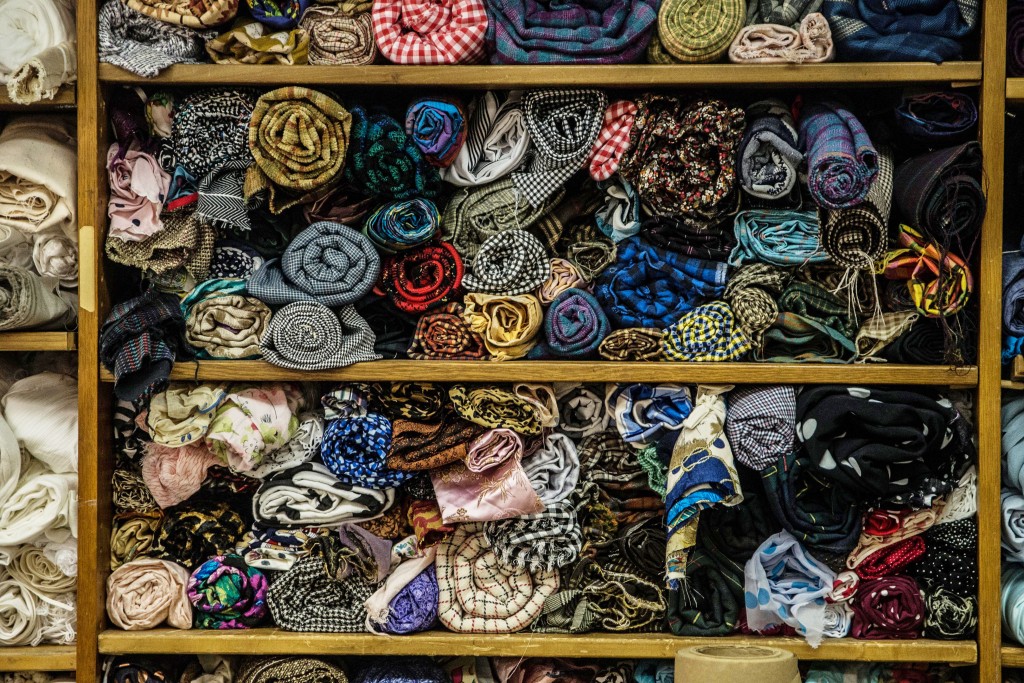
Few people outside of Binghamton University’s theatre department know that deep in the trenches of the Fine Arts Building, there is a secret stash of dress patterns from the 1950s, costumes from the 1930s and fabric scraps in every color and material imaginable.
The department’s costume shop, located two stories down from Watters Theater, provides the complete wardrobes for all of the Mainstage productions that the department puts on each semester. This includes everything from making dresses to selecting the right accessories for each costume.
The costume shop is run by three professional staff members, but students perform the majority of the work as part of classes or to fulfill requirements for the theatre major and minor. Students outside of the major, particularly those who are interested in fashion design, also work in the shop.
Andrea Lenci-Cerchiara, 05′, head of the costume shop and an adjunct lecturer in the theatre department, feels a special connection to BU and its theatre program, as she is an alumna herself. After graduating from BU, Lenci-Cerchiara went on to become a freelance costume designer. She later studied in the history of design graduate program at the Cooper-Hewitt Smithsonian National Design Museum before returning to Binghamton, where she has been for the past four years.
Lenci-Cerchiara said she feels lucky to be back in Binghamton, where students have so many opportunities and the ability to collaborate with a variety of departments and individuals on-campus.
Visiting the costume shop on a recent weekday, the staff is busy preparing for the photo call, during which the cast dresses in full costumes and makeup so photos can be taken for promotional materials. The upcoming production of the play “Dancing at Lughnasa,” a family drama set in 1930s Ireland, requires researching period makeup and accessories, sewing garments from vintage patterns and sourcing vintage clothing to tailor to the actors’ bodies and even getting the right underwear.
Lenci-Cerchiara said that she wants students to realize that the costume shop is responsible for putting together “everything to create a show,” which includes “a lot more than sewing.” Classes taught in the costume shop include theatrical makeup, costume design, history of design and costume technology.
Nicolas Coccaro, a junior majoring in theatre, works in the costume shop for about eight hours a week to fulfill major requirements, as well as for his class, costume technology.
“It’s very fun to get involved and actually be able to see your work go up on stage,” Coccaro said. “If something works for the actors with the costumes or something’s not right, it’s on you and you can feel responsible for how the production goes.”
Marisa Cartusciello, a sophomore majoring in theatre, is also in costume technology this semester, and enjoys the environment the costume shop provides for students.
“Sandy, Andrea and Marisa are so helpful and patient,” Cartusciello said. “They put on music for us to listen to and there is always a good atmosphere when we work. I think it is a fantastic learning opportunity for the students to be able to get hands-on experience in the costume shop.”
Students also have the opportunity to participate in a theatre intensive class, which meets every night during the two weeks leading up to each Mainstage production. This class gives students a taste of all of the aspects of putting together a theatre production, including costume work, scene work, technical skills and house management.
If you wander around the Fine Arts Building and are able to find the costume shop, you’ll discover a trove of vintage clothing, a rainbow of fabrics and more machines than you would imagine could fit in such a space. But you’ll also find students and faculty members who really love what they are doing and are working really hard behind the scenes to create a hugely important aspect of each play. And if you can’t find the costume shop? You’ll see the finished products on stage soon.


